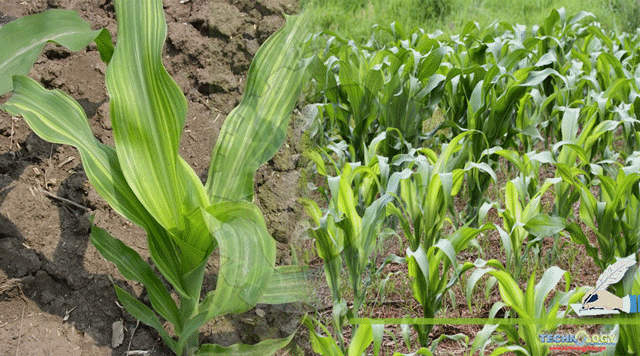Zinc is a “micronutrient” that is important not only for plants but also for animals and humans. In plants, it is particularly important for photosynthesis, DNA replication, protein synthesis, cell disruption, and enzyme activity.

Zinc is directly related to our health. According to the World Health Organization, zinc deficiency is the fifth leading cause of illness and death in humans. This problem is more prevalent in developing countries than in developed countries. Because in developing countries like Pakistan and India, 3 things are mostly used for human food (wheat, rice, corn). Which is important in the daily diet. According to a recent survey, 70% of Pakistan’s land is deficient in zinc.
Zinc is present in Pakistani lands. The problem is solvable. When wheat, rice or maize are grown on zinc deficient lands, the grains produced from them are also deficient in zinc. Of course, when a person consumes these low-zinc foods, zinc deficiency occurs in humans. Health statistics show that one-third of the world’s population is deficient in zinc. In humans, zinc is important for DNA replication, protein synthesis, cell division, and the reproductive system in both men and women.
Zinc deficiency causes hair loss and memory loss. The amount of zinc in the body varies according to age and sex. According to one estimate, the highest amount of zinc needed by pregnant women is 14 mg daily. This amount is 10 mg daily for all women and 12 mg daily for men. And for children under 8, the dose is 5 milligrams a day.
If the amount of zinc in cereal crops such as wheat, rice and maize is increased in some way, diseases and deaths can be prevented by compensating for the deficiency of zinc.
There are various ways to supplement zinc deficiency in humans by increasing the amount of zinc in plants. These include different methods of breeding, application of chemical fertilizers, application of zinc soluble germs on seeds at the time of sowing. Each method has its own advantages and disadvantages.
I have been involved in scientific research for over 5 years. I think the use of zinc soluble bacteria and their fixation on urea can definitely be beneficial. Engro, a well-known Pakistani fertilizer company, has launched its product in this regard Engro Zabardast Urea.
Zinc-soluble beneficial bacteria dissolve frozen zinc as well as stay in the roots of plants and cause growth and productivity in various ways. Due to the presence of zinc on urea, the plant gets zinc easily. And there is no zinc deficiency in the grains obtained in this way and it is a low cost method in which the quality and yield of cereal crops can be increased without spending separately. And humans can be saved from zinc deficiency.